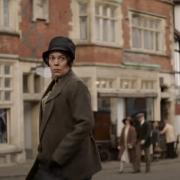Too few couples at the end of their relationship will be aware that it is possible for them to sit down with their solicitors and work together to find the best solutions for the family. Lisa Burton-Durham, specialist Collaborative Lawyer with Sussex firm Family Law Partners, believes that Collaborative Law is an option that more people should consider.
The word divorce can stir all manner of emotions and expectations. Commonly, most people will brace themselves for a courtroom battle, mud-slinging, children being used as bargaining tools and absolutely no chance of remaining friends with their former partner in the future. For many families the conflict never ends and everyone involved, particularly the children, finds it extremely difficult to move on.
Traditionally, when solicitors and the couple can’t reach an agreement, it is left to the family courts to decide what is going to happen to the family home and other assets, plus the future arrangements for the children. Historically this has meant uncertainty and more often than not, misery for everyone involved.
What is collaborative law?
Unlike the traditional adversarial process, each person appoints their own collaboratively trained lawyer and the couple and their respective lawyers all meet together to work things out face to face. Each party has their lawyer by their side throughout the whole process to provide support and legal advice. It is non-adversarial and family focused. Lawyers don’t spend weeks exchanging letters trying to resolve the issues, instead everyone sits down together and works to find solutions that are right for you and your family. It requires commitment from the couple and their lawyers by signing an agreement that compels everyone to attempt to resolve the issues without involving the court.
How does it work in practice?
The couple and their lawyers meet together (known as four way meetings) as often as needed to discuss the issues. The couple discuss what they want to discuss. The meetings are constructive and their aim is to enable the couple to negotiate, look at the options, deal with any conflict and reach an amicable resolution. The couple will individually be invited to voice their concerns and what they hope to achieve. Everything is openly discussed and everyone is expected to be honest and respectful.
What are the advantages?
There are many advantages in comparison to the traditional practice. The couple is in control and each partner has a voice. They set the agenda and timescales. There is no threat of court proceedings hanging over them. The decisions are made by the couple and not by a Judge who knows little about the family. It is often better value for money as it is very likely that the issues will be resolved far quicker that going to court. It provides open communication and undoubtedly ensures respect is maintained throughout the process and in the future. It also enables the couple to plan for their futures and those of their children.
By far the biggest advantage to many is that the family is able to move forward in a far more amicable and respectful way. Good relationships are maintained and many couples have reported that being able to work through every aspect of their separation – both practical and emotional – has enabled them to feel positive about their futures.
Another feature of the process is the more open use of other professionals, such as accountants, financial advisers or counsellors. Often discussions revolving around finances can benefit from assistance from a pension expert for example. Likewise, when discussing their children’s needs, a family consultant, mediator or counsellor could be valuable in overcoming a particular sticking point. Working as a team with other experts ensures that the right help is given at the right time - and for the right problem.
In contrast, the court’s ‘one size fits all’ approach doesn’t allow for such flexibility and is ultimately a process that has been designed to enable the court to do its work efficiently. The result is that the case in question doesn’t always take into account the individual needs of each family and the individuals involved.
All collaboratively trained lawyers join a local practice group called a ‘POD’. This group will meet up regularly together with other collaboratively trained professionals such as financial advisors and counsellors to discuss practice issues. Meeting in this way helps lawyers and other professionals to work more effectively together on collaborative cases.
What can it be used for?
Collaborative Law isn’t just for separating couples – it can also be a great way to discuss other issues, such as agreeing terms for a Pre-Nuptial Agreement. The process can be used for a wide range of issues, including:
• Financial arrangements following relationship breakdown
• Agreeing arrangements for the children
• Civil Partnership disputes
• Arranging Living Together Agreements
• Arranging Pre-Marriage and Pre-Civil Partnership Agreements
• Agreeing property ownership
Will it work?
There are no guarantees that the collaborative process will work for everyone and although it sounds straightforward, it requires commitment and a genuine desire by everyone involved to reach solutions. It also requires a willingness to be honest, particularly about financial information. Reassuringly, statistics tell us that the success rate for collaborative cases is 90 per cent and many couples have achieved better relationships in the long-term.



























